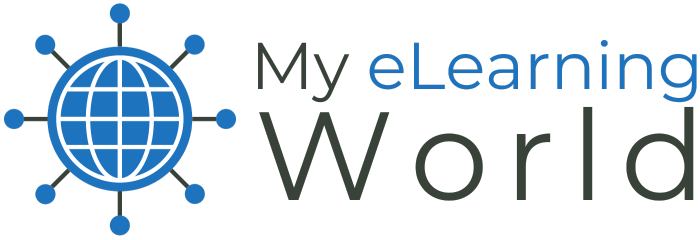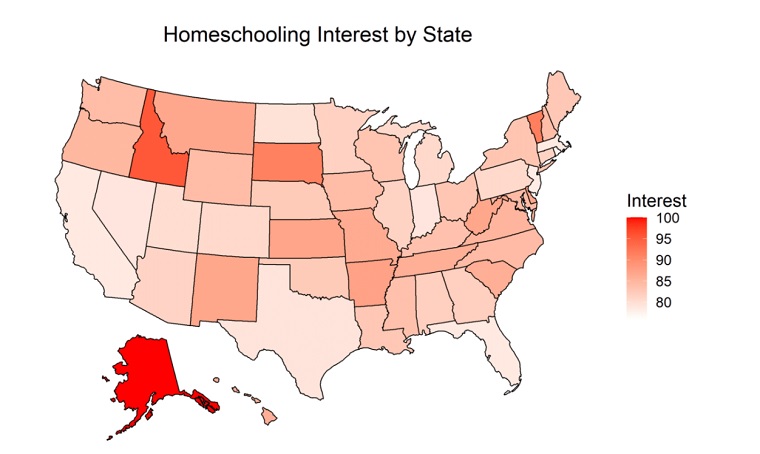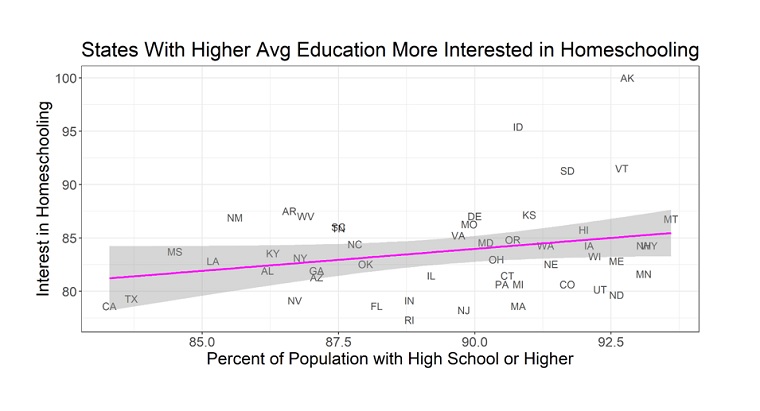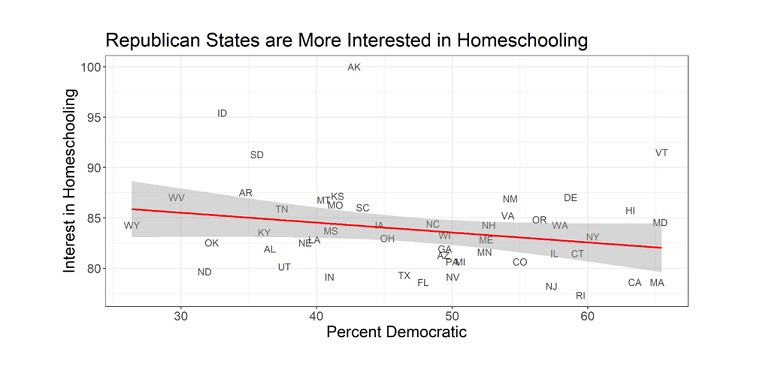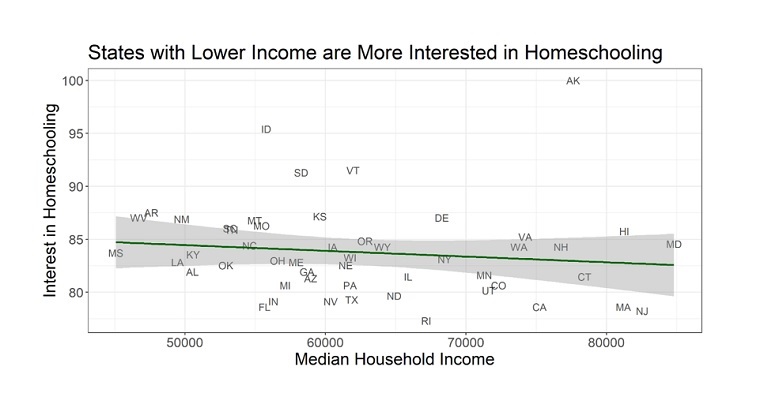As another school year begins, some students will find themselves skipping the traditional classroom for the first time as they start homeschooling instead.
The last couple of years have shaken up the face of education and caused many parents to reassess their choice of schooling for their children.
Whether parents are experiencing safety concerns of exposure to the coronavirus, dissatisfaction with the quality of education kids are receiving, or even philosophical differences with school leadership, the outcome is the same — interest in homeschool has soared over the last two years.
One study found 72.2% of families who started homeschooling their kids during the pandemic wouldn’t be returning to public schools. Another study prior to the start of the 2021-2022 school year revealed that 9% of parents who weren’t previously homeschooling their kids were planning to give it a shot this year. One more recent study found that homeschooling numbers have increased by over 60% in some states.
Additionally, many homeschooling coalitions have been reporting a massive increase in calls and emails from parents who want to learn more about potentially homeschooling their children. And many homeschool apps are seeing an increase in downloads.
And with teacher shortages further complicating things at a number of schools across the country, many parents are still considering the switch to homeschooling as we head into the 2022-23 academic year.
But is this growing interest in homeschooling something that’s consistent all across the United States? Or is it more prevalent in some regions of the country than others?
We partnered with Mindnet Analytics, a data science consulting firm, to compare interest in homeschooling across all 50 states, combining search trends with publicly available demographic data.
Here’s what we found…
Overview
State Rankings of Homeschooling Interest
| State | Interest Score |
| Alaska | 100 |
| Idaho | 95 |
| Vermont | 92 |
| South Dakota | 91 |
| Arkansas | 88 |
| Delaware | 87 |
| Kansas | 87 |
| Montana | 87 |
| New Mexico | 87 |
| West Virginia | 87 |
| Hawaii | 86 |
| Missouri | 86 |
| South Carolina | 86 |
| Tennessee | 86 |
| Maryland | 85 |
| Oregon | 85 |
| Virginia | 85 |
| Iowa | 84 |
| Kentucky | 84 |
| Mississippi | 84 |
| New Hampshire | 84 |
| North Carolina | 84 |
| Washington | 84 |
| Wyoming | 84 |
| Louisiana | 83 |
| Maine | 83 |
| Nebraska | 83 |
| New York | 83 |
| Ohio | 83 |
| Oklahoma | 83 |
| Wisconsin | 83 |
| Alabama | 82 |
| Georgia | 82 |
| Minnesota | 82 |
| Arizona | 81 |
| Colorado | 81 |
| Connecticut | 81 |
| Illinois | 81 |
| Michigan | 81 |
| Pennsylvania | 81 |
| North Dakota | 80 |
| Utah | 80 |
| California | 79 |
| Florida | 79 |
| Indiana | 79 |
| Massachusetts | 79 |
| Nevada | 79 |
| Texas | 79 |
| New Jersey | 78 |
| Rhode Island | 77 |
| District of Columbia | 76 |
Key Findings
Our analysis revealed a number of interesting findings about the growth of homeschooling interest across the US:
States with Higher Average Education are More Interested in Homeschooling
The strongest correlation we found was between education level and interest in how to homeschool kids. This is backed by previous studies, including a 2015 report from the US Department of Education, showing that higher educated parents are likelier to homeschool their kids compared to those with less education.
Republican States are a Little More Interested in Homeschooling
We also found a relatively strong correlation between political identity and homeschooling interest. Simply put, red states are likelier to have parents interested in homeschooling their children than blue states.
This aligns with previous voter surveys that found 62% of homeschool parents reported voting for the Republican presidential candidate Donald Trump in 2016 while 61% voted for Romney in 2021.
States with Lower Income are More Interested in Homeschooling
Perhaps the most surprising finding we uncovered is that homeschooling interest is higher right now in lower income states.
This is interesting because previously homeschooling families were much likelier to report earning an average or above-average income. But after months of dealing with this pandemic, this is no longer the case. Now, we’re seeing a much more economically diverse homeschooling population, and interest amongst those in lower income brackets seems to be on the rise.
In fact, a recent United States Census Bureau survey found that “20 percent of US homeschool households had yearly incomes of less than $25,000, 17.8 percent experienced incomes between $25,000 and $34,999, [and] 19.5 percent between $35,000 to 49,999”.
Our Methodology
We used search volume data from Google Trends to measure interest in homeschooling in the US. To capture multiple forms of search queries about homeschooling we extracted and averaged the search frequencies for various terms indicating searcher interest in homeschooling.
In each visualization, we rescaled the search interest variable so that “100” represents the state with the most search interest (or the time with the most search interest in the case of the time series visualization).
To assess correlations with demographics, we merged in state-level demographic information on political party, income, and education levels. Official 2020 presidential voting records were obtained from the MIT Election Data + Science Lab. To assess the percent of the population in each state that voted Democratic we calculated the vote share for Democratic candidates in each state. The information we obtained on median household income per state and education level was originally collected by the US Census Bureau, averaged over 2015 through 2019.
Technical notes: To assess the correlations between these three demographic variables and homeschooling interest we fitted a multivariate OLS regression model with homeschooling search interest predicted by the three demographic variables. These results confirm that the association with education is the strongest and most robust.
